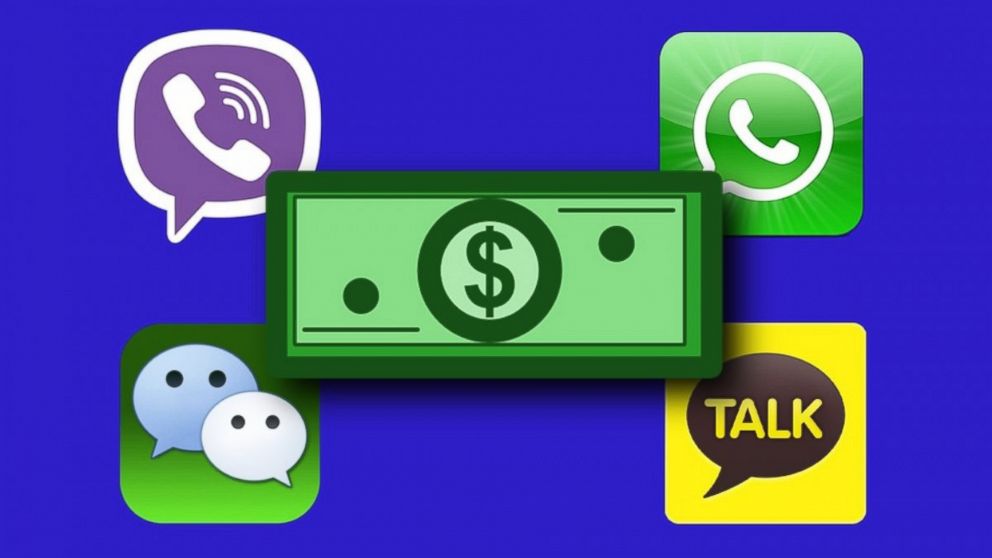Are Ads Coming to Messaging Apps?
Mobile messaging represents an oft-unsung yet powerful worldwide trend.

— -- Mobile messaging represents an oft-unsung yet powerful worldwide trend. WeChat has over 400 million users; WhatsApp has over 300 million; Viber hit 200 million a few months ago, and dozens more boast user bases in the tens or hundreds of millions on various app stores worldwide. The volume of conversation on each is staggering, too. According to WhatsApp, the company has more daily active users than Twitter.
Judging by today's usage, messaging platforms have become de facto social networks — with your phone book acting as your social graph.
SEE ALSO: 10 Free Android Apps You'll Use Every Day
An increasing number of brands, organizations and individuals are now asking how they can connect with the audiences who use these apps. Few of the bigger Western apps feature any sort of facility for brand or organization engagement, after all. And WhatsApp has publicly stated that it has no plans to support any sort of advertising model within its apps. They're far from alone.
I spoke with CEO of Viber Talmon Marco about his company's move toward stickers, revenue generation and the potential for brands to come onto the platform. "This is definitely something we're looking at. We do want to allow it," he said. "I see no problem with someone like Coca-Cola or Lady Gaga communicating in a positive, opt-in way with users. Throwing pop-ups in their faces isn't the way to do that."
Two of the major Asian apps, WeChat and KakaoTalk, offer a blueprint solution for businesses that want to engage on these platforms.
Intel, Starbucks, Nike, Louis Vuitton and many others already have active presences on WeChat. McDonald’s has even started generating revenues from mobile to offline using the platform.
KakaoTalk, a messaging app with over 100 million users (mainly in Japan and Korea) takes a slightly different approach. Brands who want to use their Plus Friends service to connect with users pay a fee for the privilege. The fees start at $20,000 and accounted for 26.2% of Kakao's $46 million revenues last year.
Billions of conversations are happening on these platforms every day, and companies are aching to know what people are saying. Glenn White, a product manager at digital monitoring service Brandwatch, is already fielding queries from clients about getting access.
“We are asked about them … but we are very adamant about only collecting public data," he said. "We are never going to start snooping on private networks like WhatsApp or Snapchat, at least not without legal permission to … Whilst our clients’ customers are most certainly talking about them there, ethically, morally and legally that is not something we want to touch."
Where there’s a desire to tap user conversation, there's an equal if not stronger need for engagement. With ideal engagement, brands hope many users will be willing to pay — a quandary for Viber, WhatsApp and any existing or potential competitors. How best to make money from brands?
For some, it will mean a revenue-sharing partnership similar to the one that McDonalds has with WeChat, in which users make real-world purchases via the app. Perhaps the most likely outcome is that brands will have to pay to play on these platforms.
One thing is for certain: In today's climate, we have less and less platform and network loyalty; therefore, it's too easy for ads and poorly planned brand messaging to spoil a user's experience on mobile.
That's why you won't see any banners, autoplay videos, interstitials, pop-ups or any other type of ad on WhatsApp, Viber, etc. any time soon. They have the users. They have the momentum. They're not likely to surrender that advantage for the sake of any type of ad from any type of brand — no matter how big the fish.
Have something to add to this story? Share it in the comments.
Image: Mashable composite, KakaoTalk, Viber, WhatsApp, WeChat




